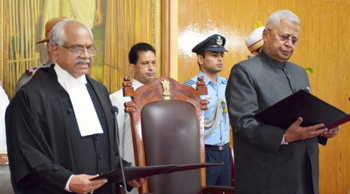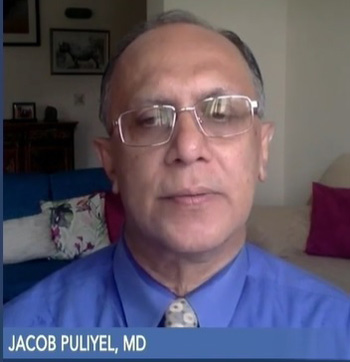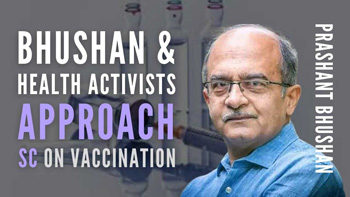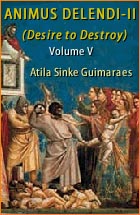International Affairs
 |
 |
 |
 |
 |
 |
 |
Northeast Indian High Court Rules against Mandatory Vaccination
The High Court of Meghalaya, a state of Northeast India, has issued a judgement against mandatory or forced vaccination, setting this court apart from the rest of the country which continues to push for vaccine mandates.
The ruling issued on the 23rd of June under the case-name: High Court of Meghalaya vs. State of Meghalaya PIL No.6/2021 follows an attempt by the Indian state to impose the COVID-19 vaccine on its citizens.

 “It has been brought to the notice of this High Court that the State of Meghalaya, through various orders of the Deputy Commissioners, has made it mandatory for shopkeepers, vendors, local taxi drivers and others to get themselves vaccinated before they can resume their businesses,” the High Court stated, adding, “whether vaccination can at all be made mandatory and whether such mandatory action can adversely affect the right of a citizen to earn his/her livelihood, is an issue which requires consideration.”
“It has been brought to the notice of this High Court that the State of Meghalaya, through various orders of the Deputy Commissioners, has made it mandatory for shopkeepers, vendors, local taxi drivers and others to get themselves vaccinated before they can resume their businesses,” the High Court stated, adding, “whether vaccination can at all be made mandatory and whether such mandatory action can adversely affect the right of a citizen to earn his/her livelihood, is an issue which requires consideration.”
Appealing to Indian law, the ruling makes it clear that forced vaccination is to be considered a crime. Among other things, it clearly states: “if an unwilling capable adult is made, by use of force or through deception to have the vaccine, [this] would be considered both a crime and a tort.”
The ruling also made reference to a number of official sources from the Indian Ministry of Health which clearly stipulate that taking the COVID-19 vaccine is strictly voluntary and that a vaccination mandate would constitute a violation of the Indian constitution, as emphasized in Article 1.7 of the ruling:
 Earlier this month, the Supreme Court only reluctantly issued notices to the Indian Health Ministry and vaccine manufacturers on the disclosure of COVID vaccine data following a petition filed by pediatrician and vaccine expert Jacob Puliyel, a prominent physician who has
spoken out on the adverse effects of the COVID-19 vaccines.
Earlier this month, the Supreme Court only reluctantly issued notices to the Indian Health Ministry and vaccine manufacturers on the disclosure of COVID vaccine data following a petition filed by pediatrician and vaccine expert Jacob Puliyel, a prominent physician who has
spoken out on the adverse effects of the COVID-19 vaccines.
The petition emphasized the need for data transparency, stating it “is important for the respondent authorities to carefully monitor vaccine recipients and publicly record all adverse events. In other countries, this type of observation has helped identify the occurrence of blood clots and strokes in vaccine recipients.”
Justice L Nageswara Rao of the Supreme Court expressed his concerns that such a petition could be considered “promoting vaccine hesitation.”
“We are fighting against vaccine hesitancy. Do you not think such petitions would create doubt in the minds of the people?” he asked.
Bhushan insisted that it was not an anti-vaccine petition, but instead stressed that, though the COVID vaccine is supposed to be taken on a voluntary basis as per the government’s own directives, authorities in a number of Indian states have passed measures that make it virtually mandatory.
 Bhushan was alluding here to another part of Puliyel’s petition, which states that “[c]oercing citizens directly or indirectly to get vaccinated is unconstitutional and violates the right to life of citizens.” The petition also pointed out that “while the [Indian] government has clearly stated (…) that Covid vaccines are voluntary, there are many instances from across the country where now various authorities are mandating vaccines.”
Bhushan was alluding here to another part of Puliyel’s petition, which states that “[c]oercing citizens directly or indirectly to get vaccinated is unconstitutional and violates the right to life of citizens.” The petition also pointed out that “while the [Indian] government has clearly stated (…) that Covid vaccines are voluntary, there are many instances from across the country where now various authorities are mandating vaccines.”
The petitioner further noted that “though emergency authorization of the vaccines may be advisable in the present situation, it does not however mean that these vaccines can be forced upon people, especially without all relevant data being available for independent public and scientific scrutiny.”
The Supreme Court refused to rule against the vaccine mandate, however, using the excuse that such measures are being implemented in many countries across the world and quoting the World Health Organization’s (WHO’s) claim that “vaccine hesitancy is one of the major problems in the world.”
This article was first published in
LifeSiteNews on August 25, 2021

The ruling issued on the 23rd of June under the case-name: High Court of Meghalaya vs. State of Meghalaya PIL No.6/2021 follows an attempt by the Indian state to impose the COVID-19 vaccine on its citizens.

Above, the High Court of Meghalaya; below, Ajay Kumar is being sworn as Chief Justice in May 2019

Appealing to Indian law, the ruling makes it clear that forced vaccination is to be considered a crime. Among other things, it clearly states: “if an unwilling capable adult is made, by use of force or through deception to have the vaccine, [this] would be considered both a crime and a tort.”
The ruling also made reference to a number of official sources from the Indian Ministry of Health which clearly stipulate that taking the COVID-19 vaccine is strictly voluntary and that a vaccination mandate would constitute a violation of the Indian constitution, as emphasized in Article 1.7 of the ruling:
1.7. A perusal of the above RTI replies makes it is clear that the Union of India has made the vaccination drive completely voluntary. To coerce someone to take the vaccine is not only contrary to the guidelines of the Union of India but a violation of Article 14 and 21 of the Constitution of India.Beyond emphasizing the anti-constitutional nature of a vaccine mandate, the text also notes that individuals enforcing such a mandate are liable for action under the Indian penal code, a point emphasized in Article 2 of the ruling:
Persons or authorities forcing for vaccination will be liable for action under contempt and also face prosecution under section 188, 166 et al of Indian Penal Code.The judgement also recalls that provisions against forced vaccination have been laid out in Indian law for decades:
Coercive vaccination, since the early phases of vaccination as a preventive measure against several diseases, has been time and again, not only discouraged, but also consistently ruled against by the Courts for over a century.In rejecting the legality of a vaccine mandate, the High Court of Meghalaya distinguished itself from other courts in the country, including India’s Supreme Court which in early August refused to intervene on a plea against the vaccine mandate. The Times of India paraphrases Prahan Bhushan, an advocate for the petition, as explaining that “though the government on paper is taking the stand that it voluntary, authorities have passed various vaccine mandated directions which make vaccination virtually mandatory.”

Dr. Puliyel filed a petition to the Indian Supreme Court asking for the vax effects to be monitored
The petition emphasized the need for data transparency, stating it “is important for the respondent authorities to carefully monitor vaccine recipients and publicly record all adverse events. In other countries, this type of observation has helped identify the occurrence of blood clots and strokes in vaccine recipients.”
Justice L Nageswara Rao of the Supreme Court expressed his concerns that such a petition could be considered “promoting vaccine hesitation.”
“We are fighting against vaccine hesitancy. Do you not think such petitions would create doubt in the minds of the people?” he asked.
Bhushan insisted that it was not an anti-vaccine petition, but instead stressed that, though the COVID vaccine is supposed to be taken on a voluntary basis as per the government’s own directives, authorities in a number of Indian states have passed measures that make it virtually mandatory.

Lawyer Bhushan represents Dr. Puliyel in court
The petitioner further noted that “though emergency authorization of the vaccines may be advisable in the present situation, it does not however mean that these vaccines can be forced upon people, especially without all relevant data being available for independent public and scientific scrutiny.”
The Supreme Court refused to rule against the vaccine mandate, however, using the excuse that such measures are being implemented in many countries across the world and quoting the World Health Organization’s (WHO’s) claim that “vaccine hesitancy is one of the major problems in the world.”

Posted August 25, 2021
______________________
______________________
 Volume I |
 Volume II |
 Volume III |
 Volume IV |
 Volume V |
 Volume VI |
 Volume VII |
 Volume VIII |
 Volume IX |
 Volume X |
 Volume XI |
 Special Edition |


